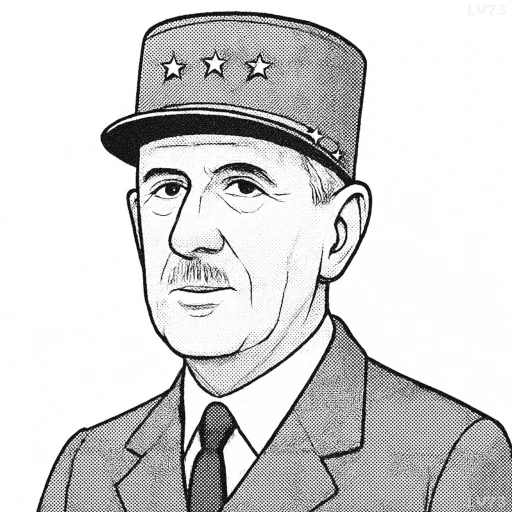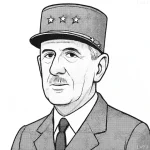“Faced with crisis, the man of character falls back on himself. He imposes his own stamp of action, takes responsibility for it, makes it his own.”

- November 22, 1890 – November 9, 1970
- French
- Military Leader, Statesman, President of France, Founder of the Fifth Republic
table of contents
Quote
“Faced with crisis, the man of character falls back on himself. He imposes his own stamp of action, takes responsibility for it, makes it his own.”
Explanation
In this quote, Charles de Gaulle defines true leadership in moments of crisis as an act of inner strength and individual moral will. A “man of character,” when confronted with turmoil, does not look outward for approval or direction, but rather relies on his own judgment and sense of duty. He takes decisive action, owns the consequences, and shapes events through personal integrity and conviction. This vision of leadership is both stoic and bold, rooted in the belief that responsibility cannot be delegated in times of trial.
De Gaulle lived this philosophy most clearly during June 1940, when he refused to accept France’s surrender and chose instead to lead the Free French from exile. With little support and immense risk, he acted alone, stamping history with his determination and making the cause of France his own. His career exemplifies the idea that a leader’s greatness emerges not from consensus, but from the courage to stand firm when others falter.
In today’s world, this quote continues to resonate wherever leaders are called to navigate uncertainty, conflict, or failure. It is a powerful reminder that character is revealed not in comfort, but in crisis—and that true authority is earned by those who act with clarity, responsibility, and unwavering resolve. De Gaulle teaches that greatness is not given—it is taken, shaped, and owned by the strength of one’s own will.
Would you like to share your impressions or related stories about this quote in the comments section?
